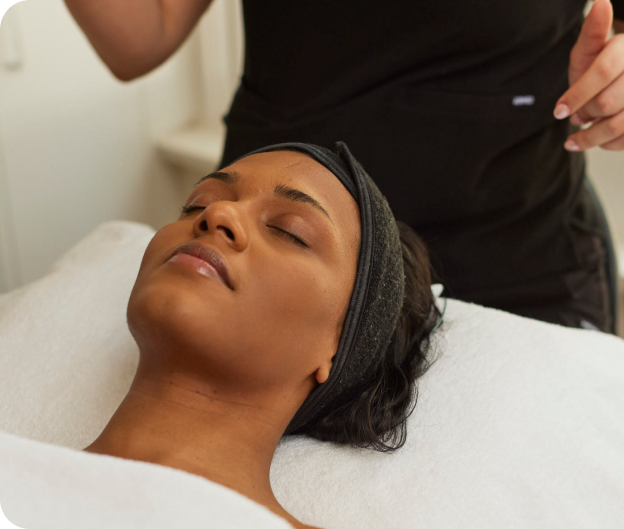
Our skin changes and evolves over time as we go through the ageing process. So how we approach skincare must evolve also. When we consider the process, we can break it down into intrinsic ageing and photoageing (also known as extrinsic ageing). Photoageing is the effects of environmental factors on the skin, the most common being excessive sun exposure. Intrinsic ageing is the natural genetic ageing process and is largely predetermined when we are born.
Intrinsic signs of ageing include;
- Top layer of the skin (epidermis) thins
- The deeper layer of the skin (dermis) and bones shrink causing the appearance of sagging
- Fine wrinkles
- Pigmented spots
- The amount of fat on face decreases creating a more sunken appearance (especially fat pads above eyes and around mouth).
Extrinsic signs of ageing include;
- Top layer of the skin (epidermis) thickens
- The deeper layer of the skin (dermis) thins
- Development of coarse wrinkles, deep wrinkles and furrowing
- Mottled, uneven pigmentation
- Skin growths (called actinic keratosis)
- Glycation, cross linking of collagen and elastin
In our 20s
When we are in our 20s (or younger), it is perfect time to kick start a balanced skin care routine. This is where we can have the greatest opportunity to prevent extrinsic ageing, so SPF 50+ sunscreen is a must every day. When considering skincare, always choose products that are high in antioxidants to help quench free radicals and minimise the ageing process. Preventing damage at a younger age is far more effective than treating damaged skin later in life.
We recommend: Medik8 B5 & La Roche-Posay Sunscreen 50+ SPF
In our 30s
When we hit 30 our collagen and elastin production has already slowed down. This means we need to focus on regenerating the skin. Dullness and uneven texture can start to show; especially if a good exfoliator is not part of your skincare routine. In our 30s, it is important to focus on vitamin A (also known as retinol) and chemical exfoliators such as lactic acid, glycolic acid, salicylic acid and pyruvic acid. Chemical exfoliators contain acids and enzymes that gently dissolve and encourage the removal of dead skin cells. As they do not require scrubbing they are often more gentle on the skin than non-chemical exfoliants. They will help to exercise the skin and encourage cell renewal whilst evening the skin’s texture. They may also help to reduce the appearance of wrinkles.
We recommend: Rationale Preparatory Cleanser & Immunologist UltraCreme
In our 40s
Our 40s is when the true intrinsic signs of ageing start to show. Due to the noticeable change in the skin, a number of ingredients must be integrated to help support the skin holistically. When considering skincare, always include antioxidants, chemical exfoliators, vitamin A, and peptides. Peptides are best explained as fragments of proteins that teach the skin to do what’s required. Without peptides, the skin can result in loss of firmness, appearance of wrinkles, texture changes, and skin that doesn’t bounce back as it once did.
We recommend: Hyal Ceutic Intense Moisturiser
In our 50s and above
In our 50s and above, all previous skin exposure starts to show. The effects of sun damage results in discolouration of our skin so we see more redness, pigmentation and actintic damage present to the surface. Our wrinkles over time can become more obvious and they don’t just appear with the use of expression. This is a perfect time to treat the sun damage, redness and pigmentation with our ALA/ PDT treatment. Your skin will require a heavier moisturiser and don’t forget vitamin a serum!
We recommend: Regen Ceutic Skin Recovery Cream & Biopelle Retriderm Serum Plus
At all ages, Skindepth encourage their patients to eat a diet filled with fruit and vegetables, nuts as well as oily fish such as salmon and sardines. Avoid dairy if you are prone to acne.
It’s important to remember that there are so many factors that can influence our skin health. If you are unsure about the best way to care for your skin, always speak to a qualified Dermal Clinician or Dermatologist.
